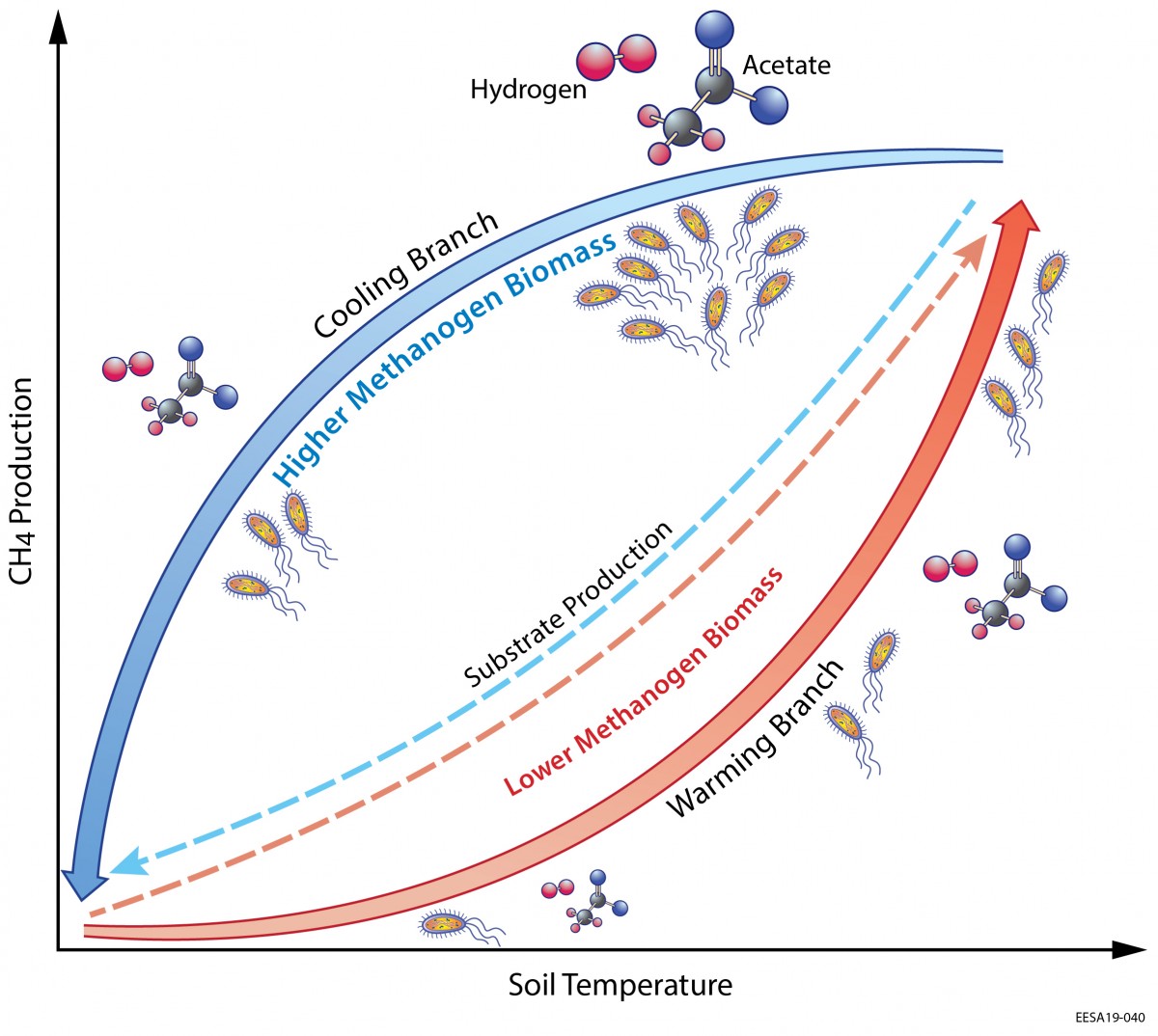Hysteretic methane emission temperature dependence from microbial and abiotic interactions
Methane (CH4) emissions from terrestrial systems are posited to increase, which can offset mitigation efforts and accelerate climate change. Yet, the accuracy of modeled CH4 emissions is sensitive to the prescribed CH4 production (or emission) temperature dependencies that are currently uncertain. Here, we estimated the temperature dependence of CH4 emission using data collected by the recent FLUXNET-CH4 synthesis. Our results indicate that CH4 emissions are hysteretic to air and soil temperatures, which challenges the view of a unified static temperature dependence for CH4 emissions across different ecosystems. We found that a proper representation of spatial heterogeneity and temporal variability is critical to a reliable CH4 emission parameterization. For example, the R2 values for CH4 emission predictions improve from 0 to 0.29 (using a unified temperature dependence model across all sites and all years) to 0.37 to 0.76 (using site-year specific temperature dependence models) at the eight examined ecosystems. Our model simulations demonstrate that CH4 emission hysteresis stems from substrate-mediated microbial responses to temperature that stimulate greater CH4 emissions later in the thawed season. Collectively, our findings show that CH4 emissions predicted by many existing terrestrial biogeochemical models may be biased by -21 to 81% due to improper representation of microbial and abiotic interactions. We acknowledge the FLUXNET-CH4 contributors for the data provided in these analyses.

